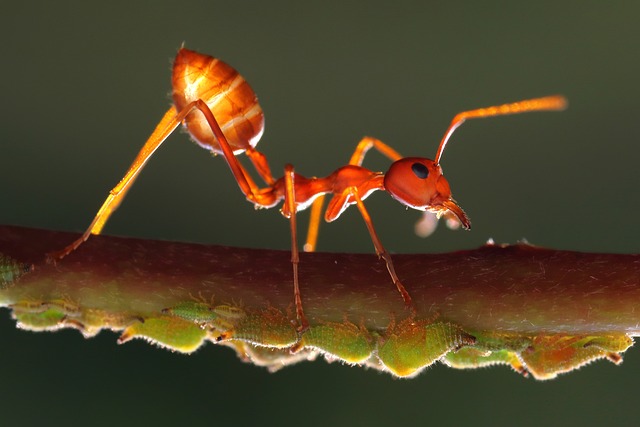Understanding ant behaviors – their organized colonies, communication systems using pheromone trails, and distinct food preferences – is key to effective pest control for ants. Early detection through identifying ant trails and nests allows for prompt action. Non-chemical approaches like maintaining cleanliness, sealing entry points, and using natural repellents can prevent infestations. Chemical interventions, including baits and tailored insecticides, systematically eliminate colonies with minimal environmental impact. Professional pest control for ants offers lasting solutions, while DIY methods provide temporary fixes. A multi-faceted approach combining cleanliness, natural deterrents, and sealing entry points significantly reduces ant infestations.
Ants, with their complex colonies, can quickly turn into a household nuisance. Effective ant removal requires understanding these tiny invaders and their behaviors. This article offers a comprehensive guide, from recognizing ant signatures and non-chemical methods to exploring chemical interventions and DIY vs professional control. Learn essential preventative measures too, securing your space against these persistent pests once and for all. Discover the best strategies for successful pest control for ants.
Understanding Ant Behaviors: Key to Effective Pest Control

Understanding ant behaviors is a crucial aspect of effective pest control. Ants are highly organized and efficient creatures, often forming colonies with complex structures and communication systems. They leave pheromone trails to guide other ants to food sources, which makes tracking their paths an essential first step in ant control. By identifying the main trails, you can focus your efforts on blocking access to food and disrupting the colony’s structure.
Knowing when and why ants invade is key. Different species have distinct preferences for food and nesting sites. Some prefer sweet substances, while others go for greasy or protein-rich foods. Understanding these behaviors allows for targeted treatments using appropriate pest control products. For instance, baits containing insecticides can be effective in luring and eliminating ants without harming other insects or the environment if used correctly.
Identifying Signatures: Spotting Ant Infestations Early
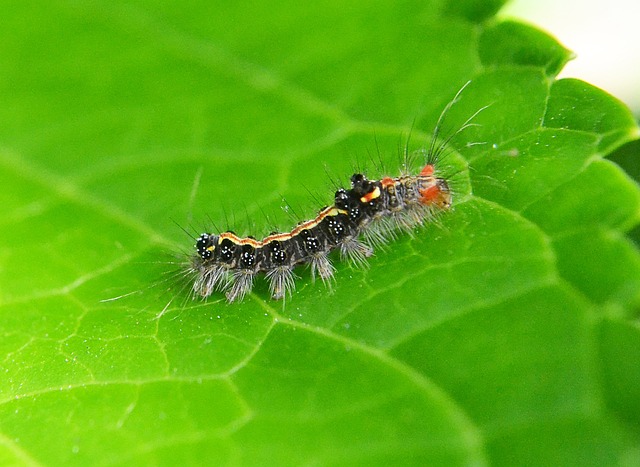
Ant infestations can often go unnoticed until they reach significant proportions, making early detection crucial for effective ant removal. The key to successful pest control for ants lies in identifying subtle signs that indicate their presence. Homeowners should be vigilant for certain behavioral patterns and physical clues left behind by these tiny invaders.
One of the most noticeable signatures is the telltale trail of ants scurrying along floors, walls, or even up trees. These paths, made up of a pheromone-laced trail, guide other ants to food sources. Additionally, ant nests, often hidden in crevices, under debris, or within structures, can serve as clear indications of an infestation. With proper observation and knowledge, homeowners can catch these signs early on, allowing for prompt action and more successful pest control measures.
Non-Chemical Approaches for Ant Removal
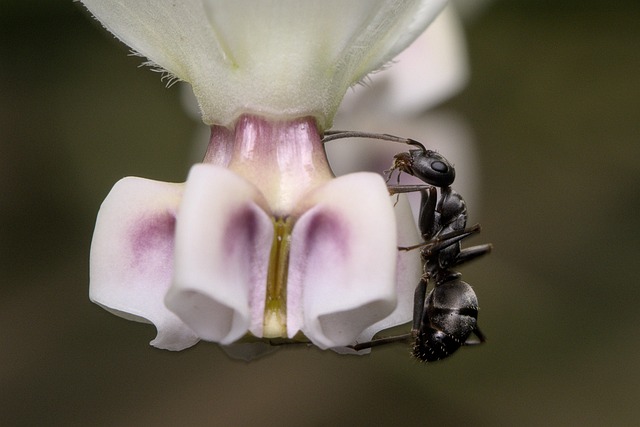
Non-chemical approaches offer a more eco-friendly alternative to traditional pest control for ants, focusing on natural methods to eliminate ant infestations. One effective strategy is to maintain a clean and clutter-free environment, as ants are attracted to food sources and hiding spots. Regularly cleaning surfaces, sweeping floors, and wiping down countertops can reduce their appeal to ants. Additionally, sealing entry points and cracks where ants might enter can be crucial in preventing their return.
Another natural method involves the use of certain plants and essential oils that have been shown to repel ants. Lemon, mint, cinnamon, and cloves are popular choices due to their strong scents. Placing pots of these herbs around problem areas or mixing them with water and spraying the solution can act as a non-toxic barrier against ants. These natural repellents provide an effective, safe way to manage ant populations without resorting to chemicals.
Chemical Interventions: Safe and Effective Solutions
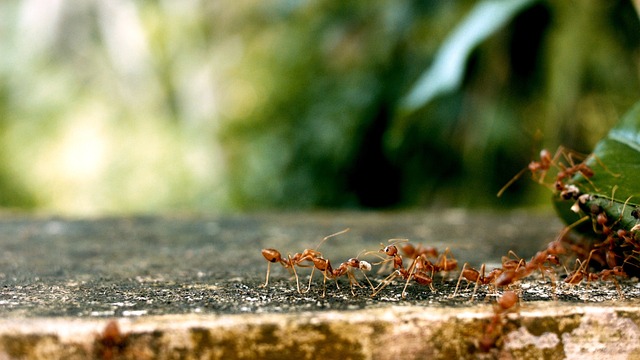
Chemical interventions play a significant role in effective ant removal, offering safe and reliable solutions for those seeking professional pest control for ants. Ant treatments can range from non-toxic baits to powerful insecticides, each designed to target specific behaviors and life stages of these persistent pests. Baits are particularly effective as they attract ants with food, which is either laced or marked with a chemical that disrupts their colony. Workers, unaware of the danger, take the substance back to their nest, slowly eliminating the entire colony.
Professional pest control services employ advanced techniques and carefully selected chemicals to ensure minimal environmental impact while achieving maximum ant control. Modern insecticides are often tailored to target specific ant species, reducing potential harm to non-target organisms and surrounding ecosystems. When applied correctly by trained professionals, these chemical interventions can provide lasting results, offering property owners peace of mind and a pest-free environment.
DIY vs Professional Ant Control: When to Call Experts
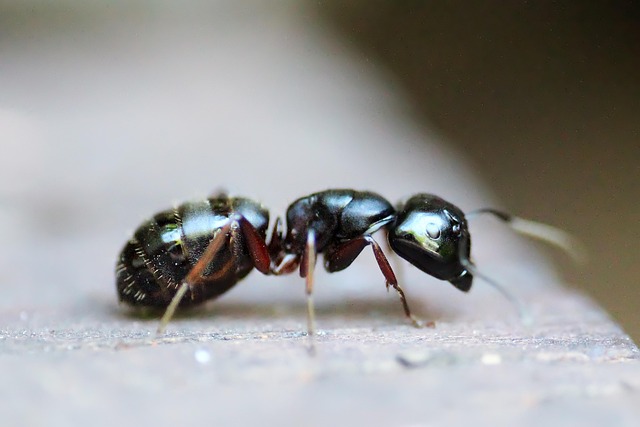
Dealing with an ant infestation can be a common household problem, prompting many to consider their options for resolution. Some opt for do-it-yourself (DIY) methods, leveraging over-the-counter pest control for ants products and home remedies. While these solutions can offer short-term relief, professional ant control services often prove more effective for several reasons.
For one, professionals have access to a wider range of specialized tools and treatments, including organic options for those who prefer eco-friendly pest control for ants. Their expertise enables them to pinpoint the specific ant species causing trouble, tailoring their approach accordingly. Moreover, professional exterminators can provide long-lasting solutions by addressing the infestation’s source and preventing future reoccurrences. In cases where an ant problem is extensive or persists despite DIY efforts, enlisting a professional service is advisable for swift and efficient resolution.
Preventative Measures: Securing Your Space Against Ants

Ants can quickly invade your space, so taking preventative measures is key in effective ant removal. Securing your home or business against ants involves a multi-step approach starting with identifying and eliminating entry points. This includes sealing gaps around pipes, electrical wires, doors, and windows, as well as filling cracks in walls and floors. Regular cleaning and sanitation are also crucial; wiping down surfaces, sweeping floors, and disposing of food waste properly helps deter ants from seeking entry.
Implementing pest control for ants should also involve using natural repellents like citronella, peppermint oil, or cinnamon around areas prone to ant activity. Planting herbs known to repel ants, such as lavender, basil, and lemongrass, can also create a natural barrier. Additionally, maintaining a clean outdoor space with no food sources or debris nearby will significantly reduce the likelihood of an ant infestation.
